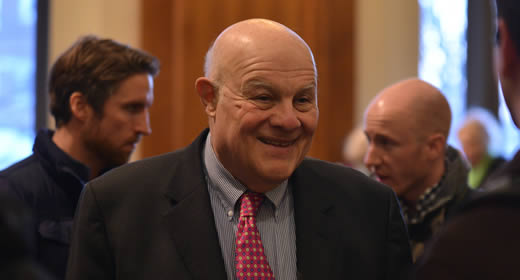
What Does the Future Hold for the US-Brazil Relationship?
Question: In a report released earlier this month entitled "A Second Chance: US Policy in the Americas," the Inter-American Dialogue said "neither Brazil nor the United States is yet ready to develop a broad, long-term partnership," but argued for identifying concrete areas for cooperation. After last weekend's meeting between Presidents Lula and Obama, how do you see the Brazil-US partnership developing? Is a strategic partnership possible in your view? Which are the most important areas for cooperation and what challenges lie ahead?
Answer: Guest Comment by Melvyn Levitsky
"Partnerships are built on parallel interests and common values. The US and Brazil have good reason to develop good, close relations, but not necessarily a strategic partnership. Brazil is in better economic shape and has more international influence than it has had in the past, but it would be difficult to say that the relationship is a top priority for the US. Brazil is still a developing country and both sees itself, and is, a leader among second- and third-world countries. For the US, this has positive and negative aspects. On the positive side, Brazil has helped moderate the rhetoric and actions emanating from activist leftist leaders like Chavez, Morales, Correa and Ortega. Bilateral trade is important to both countries, as is cooperation on international crime and drug trafficking, climate change and alternative energy. Joint efforts in the Caribbean to promote biofuels, for example, have been a model for doing useful work together. However, on issues such as trade, particularly in the agricultural sector, Cuba’s place in the hemisphere, and Brazil’s desire for a permanent seat on the UN Security Council, along with a host of UN issues over which the Brazilian and American positions have been at odds, the two countries will find it difficult to compose their differences. My sense is that relations between the two countries are about as good as they are going to get, that the relationship is useful to both and that there is no particular reason for either to wring their hands over whether they should be better. As far as the US is concerned, it's important to pay attention to Brazil, to listen to what it says, to try to enlist it in its efforts to promote economic and political freedom in the Hemisphere and to continue to work with it in areas of common interest. There is no need to court Brazil nor defer to it at times of disagreement. It is a mature country well able to handle its own affairs without concessions from the United States."
Posted with permission by Inter-American Dialogue's Latin America Advisor
[Read full edition]